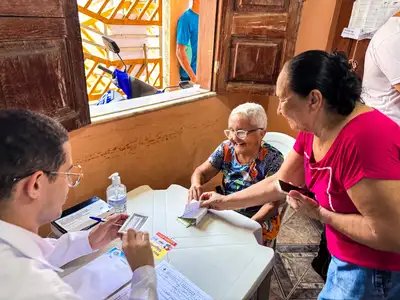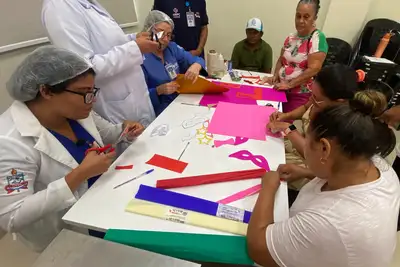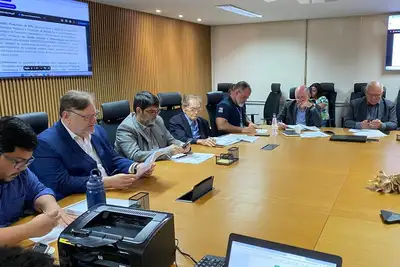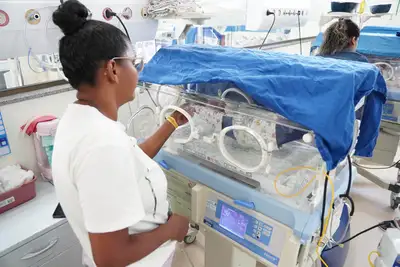Government of Pará transforms the SUS into a model of regionalized care
New units, specialized programs, and itinerant actions bring care in programs and services to those who need it most
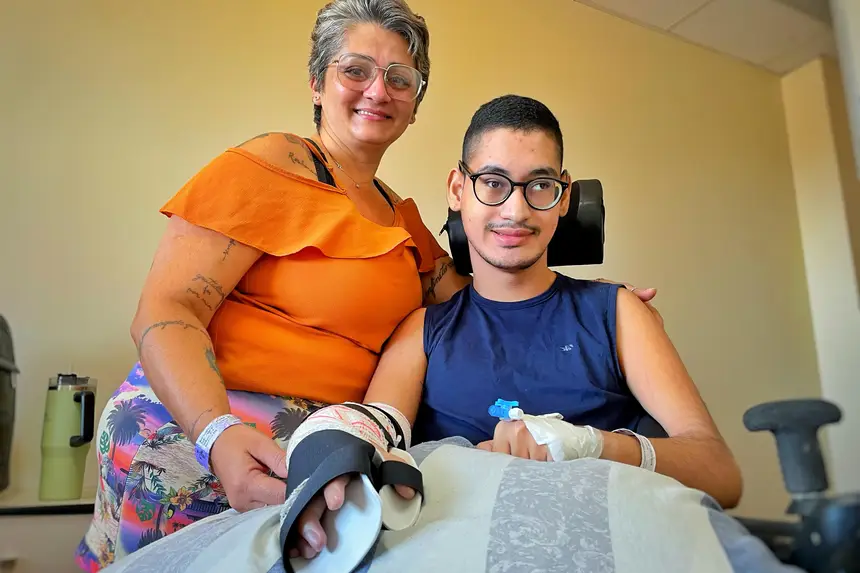
Consolidated as the largest public health system in the world, the Unified Health System (SUS) has guaranteed free and quality care to millions of Brazilians for 35 years. In Pará, the State Department of Public Health (Sespa) reinforces this commitment with policies, programs, and services that benefit the population across the territory.
The Now There Are Specialists Program, which involves state and municipal hospital units, has performed more than 11,000 elective surgeries in the State by July 2025, as a result of the surgical component of the program. In addition, Integrated Care Offers (OCIs) are being implemented, which will ensure complete care from consultation to treatment in various specialties.
According to the director of the Analysis and Services Department of Sespa, Flávio Reis, the More Specialist Doctors axis strengthens the program with professionals specialized in areas of greatest need. “The Government of the State of Pará contributes with complementary actions, such as health trucks, which expand access in hard-to-reach territories. The Now There Are Specialists is more than an action against queues; it is a new model of regionalized, integrated, and resolutive care,” he stated.
Pará is also the only Brazilian state to maintain an exclusive program for the treatment of congenital clubfoot and congenital hand deformities in children. Since 2022, more than 3,231 people have benefited. Free care through the SUS begins at the Integrated Center for Inclusion and Rehabilitation (CIIR) and, when necessary, the patient is referred to the Dr. Abelardo Santos Regional Hospital (HRAS).
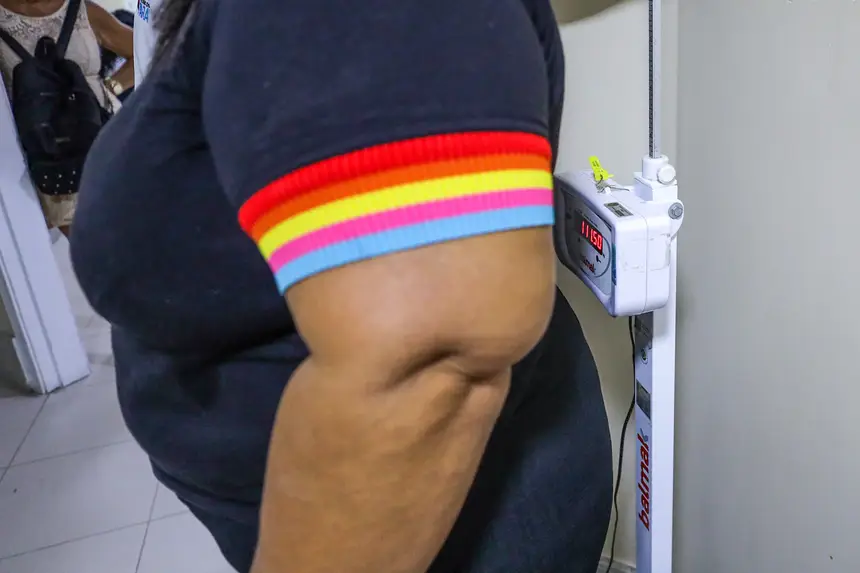
In the last five years, the Zero Obesity Program has enabled the performance of 2,266 bariatric surgeries, ensuring a better quality of life for patients. Created in 2020, the program offers free surgeries, clinical follow-up, and multidisciplinary support.
The deliveries made by the State Government have strengthened the SUS with important inaugurations, such as the Women's Hospital of Pará in Belém, the Polyclinic/Natea in Santarém, and the revitalization of municipal hospitals.
Attention to the health of the elderly
Services for the elderly population are offered at different levels of the Health Care Network (RAS). In the Specialized Reference Units (UREs), there are consultations with geriatricians, neurologists, orthopedists, and other specialists, as well as the provision of orthoses, prostheses, and wheelchairs, as in the URE Demétrio Medrado.
The Home Care Service (SAD) – Better at Home Program, managed by the municipality, integrates the Urgency and Emergency Network. Aimed at de-hospitalization, it serves patients who require continuous care, such as rehabilitation, parenteral treatments, and palliative care.
Regional hospitals, in the context of high complexity, guarantee specialized consultations, diagnostic exams, elective surgeries, and emergency admissions, regulated by Sespa. In these services, specialized medications for diseases such as Alzheimer’s, Parkinson’s, and osteoporosis are also available.
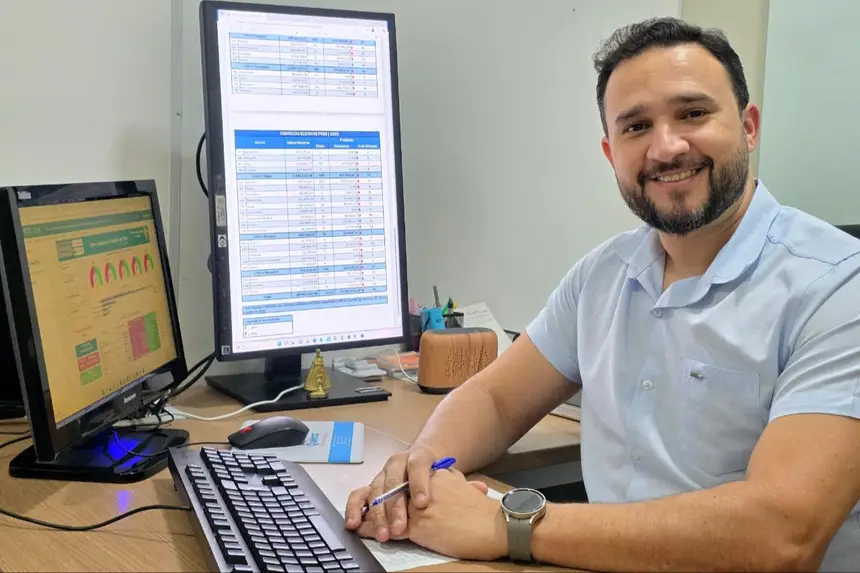
The Integrated Center for Inclusion and Rehabilitation (CIIR) is another reference space. It offers outpatient care, exams (such as audiometry, electrocardiogram, and echocardiogram), physiotherapy, occupational therapy, and multiprofessional support, with access regulated by Sespa.
In the area of mental health, the elderly can count on the Psychosocial Care Centers (CAPS), which integrate the Psychosocial Care Network (RAPS). Among the state-managed services are the CAPS Renascer (Pedreira), Grão-Pará (Cremação), Icoaraci (Icoaraci), Marajoara AD II (Marambaia), and CAPS Santarém, in addition to units managed by municipalities. Access can be spontaneous or by referral from health services.
Itinerant actions also reinforce the presence of public health in different territories. The Health Throughout Pará program brings medical, nursing, dental, gynecological consultations, vaccinations, exams, rapid tests, referrals, and educational activities to quilombola, indigenous, and African matrix communities.
Health closer to the population
Thainá Damasceno Quaresma, 36, learned about the Zero Obesity Program through a local news program and decided to enroll in 2021. At the time, she weighed 134 kilos and had hypertension, diabetes, low self-esteem, and could not keep up with her children in some activities, in addition to suffering from prejudice.
“Since the day of the surgery until today, I have lost 53 kilos, and I now weigh 68. I have a new life, with more health, energy, and quality of life. I do physical activity. I can only thank the entire hospital team and the program. Today I can be an example for my children regarding health and nutrition. I was very satisfied with the result,” she evaluated.
Lucas Rafael, 19, underwent a corrective surgery on his wrist. The young man's mother, Alexandra Nobre, 44, spoke about the transformation. “He felt a lot of pain, and now there has been improvement, including in the aesthetic part, which bothered him a lot because his wrist was completely bent. Now we are waiting for the start of rehabilitation so that he can achieve the greatest possible gains and, mainly, gain more independence,” she stated.
What is the SUS
The SUS is one of the largest public health systems in the world. It ranges from simple services, such as measuring blood pressure in Primary Care, to complex procedures, such as organ transplants. All of this is done in a comprehensive, universal, and free manner for the entire Brazilian population. It is the result of the union of three spheres of government: Union, States, and Municipalities, each with its own responsibilities, as defined in the Federal Constitution, meaning it does not belong to a single entity, but to the three spheres of government.
35 years of operation
Created by the Federal Constitution of 1988 and formalized in 1990, the SUS is one of the greatest democratic achievements of Brazil. Based on the principles of universality, equity, and completeness, it guarantees that every citizen has the right to free access to quality health care.
•Universality: ensures care for all people, without distinctions.
•Equity: seeks to reduce inequalities, prioritizing those who need it most.
•Completeness: promotes actions for prevention, treatment, rehabilitation, and integration with other public policies that impact quality of life.
The State Secretary of Public Health, Ivete Vaz, emphasizes the importance of the SUS for the country and the State. “The SUS is one of the greatest achievements of the Brazilian people, and in Pará, we have worked to bring it closer to people, with quality services in all regions of the State. All programs and actions carried out in Pará demonstrate our commitment to ensuring access, welcoming, and resolutiveness. Celebrating 35 years of the SUS is reaffirming our duty to expand the universality, equity, and completeness of care for the people of Pará.”
Over more than three decades, the SUS has established itself as a global reference in public health. In Pará, Sespa reaffirms daily its commitment to expand and qualify services, ensuring the population basic care, specialized assistance, health surveillance, research, and education.
Text from Ascom Sespa



